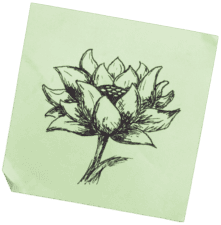This post is part of a series focusing on the eight Aspects—the “playbooks” of Divination if you will. Learn how each one represents its tarot card in the Hero’s psyche and how it plays, including a spotlight on a couple Powers for each one. The entire series is linked at the bottom of the page.

The Emperor is the divine masculine. He’s the old way, the way things maybe had to be in a more militaristic, lawless, and more violent world. Even if it isn’t really his prime era, he’s still powerful; he is power. He never goes away.
He’s this hard truth: power makes the rules. This is an uncomfortable truth, and he’s uncomfortable with it too. He often decides to be the decider in the face of this truth, so he can make the rules that he believes would work for reality.
This often has mixed results. But in a crisis, the Emperor is power itself. He’s exactly who you want next to you in a knife fight, or when you need help moving, or when your ex shows up looking to cause trouble.
For better or worse, there is a time in life for tooth and nail.
His throne isn’t comfortable and his crown is heavy. This is the price of power and authority: constant discomfort. He never gets to have what the Empress has: comfort. He has to establish comfort and security for others as a guardian—or as a conqueror—whether anyone asks for it or not.
Because if he doesn’t, he knows: someone else will. That’s the horrible lesson of power: it makes the rules. The Emperor isn’t comfortable with what power makes him do. He only knows he must, because someone will.
When you play the Emperor, you’ll be the Hero’s strength. They’ll love you when you save them from harm, but hate you when you force them to break up with the NPC you don’t like.
In the end, they’ll thank you. They’ll be better off, and will have to thank you for that, either way. You make the rules.
With powers like Defender and Expert Command, you gain incentives to keep NPC safe from harm and lead them in action. When you use these Powers, you strengthen these relationships.
If you’re willing to take the full brunt of an injury, you can use Agony of the Throne to keep the other Aspects from suffering. You can handle the pain.
With The Price of Power you can force the other Aspects to carry a heavier burden in exchange for a chance to try something again in the face of failure. They may hate you for it, but you can put pressure on them to extract success from dire situations.
Commanding Presence makes you stronger, more striking, and more worldly, a combination that lets you bully, bluff, and gladhand your way into and out of situations as needed.
The Emperor gets a bad rap as a creature concerned with power, but in every game of Divination I’ve run that included one, the other Aspects have found moments to appreciate and be grateful for their strength. Strength, power, and control are all concepts that are part of nature, with no way to remove them from the equation any more than you can remove gravity from physics.
When you play him, you get a chance to indulge in a character that enjoys strength, and can decide what to use it for. Will you be a leader? A caregiver? Or will you be something worse? Will you force others to adhere to your will, dominating them as your power allows?
Read about the other Aspects here:
- The Fool
- The Magician
- The High Priestess
- The Empress
- The Emperor (this entry)
- The Hierophant
- The Hermit
- The Hanged One
